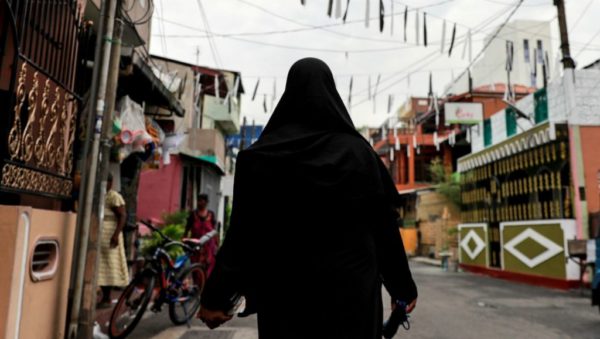
Sri Lankan President Maithripala Sirisena on Sunday announced a ban on all face coverings, a week after Islamist militants carried out coordinated suicide bombings at churches and hotels that killed 253 people.
Sirisena said he was using emergency powers to ban any form of face covering in public across Sri Lanka, with the restriction taking effect on Monday.
“The ban is to ensure national security… No one should obscure their faces to make identification difficult,” a statement from his office said.
It came days after local Islamic clerics urged Muslim women not to cover their faces amid fears of a backlash after the bombings carried out by jihadists affiliated to the Islamic State (IS) group.
Described by rights groups as a vulnerable minority, Muslims in the majority Buddhist nation account for about 10 percent of its 21 million population. Most practise a liberal form of the religion and only a small number of women wear the niqab.
Sunday’s announcement came as the effects of the Easter suicide bombings reverberated across two faiths, with Christians shut out of their churches for fear of new attacks.
Many across the Buddhist-majority nation knelt before their televisions as Cardinal Malcolm Ranjith, the archbishop of Colombo, delivered a homily before members of the clergy and the country’s leaders in a small chapel at his residence in the capital.
The closing of all of Sri Lanka’s Catholic churches – an unprecedented measure – came after local officials and the US embassy in Colombo warned that more armed militants remained on the loose armed with explosives.
Before services began, the IS group claimed three militants who blew themselves up Friday night after exchanging fire with police in the country’s east.
Investigators sifting through that site and others uncovered a bomb-making operation capable of spreading far more destruction.
(FRANCE 24 with AFP, AP)

Leave a Reply
You must be logged in to post a comment.